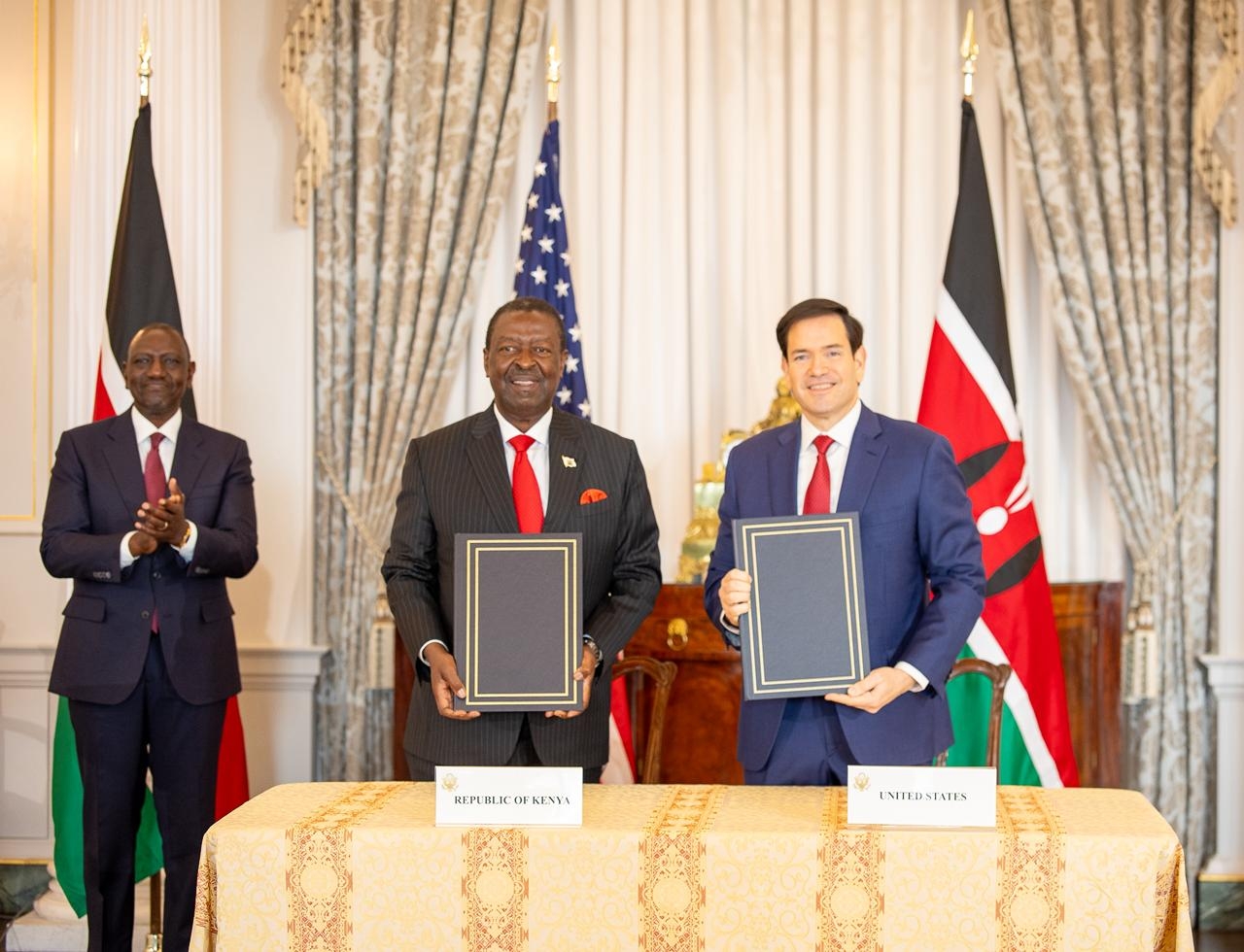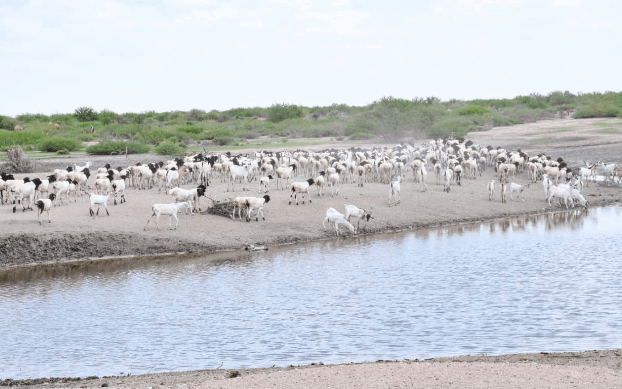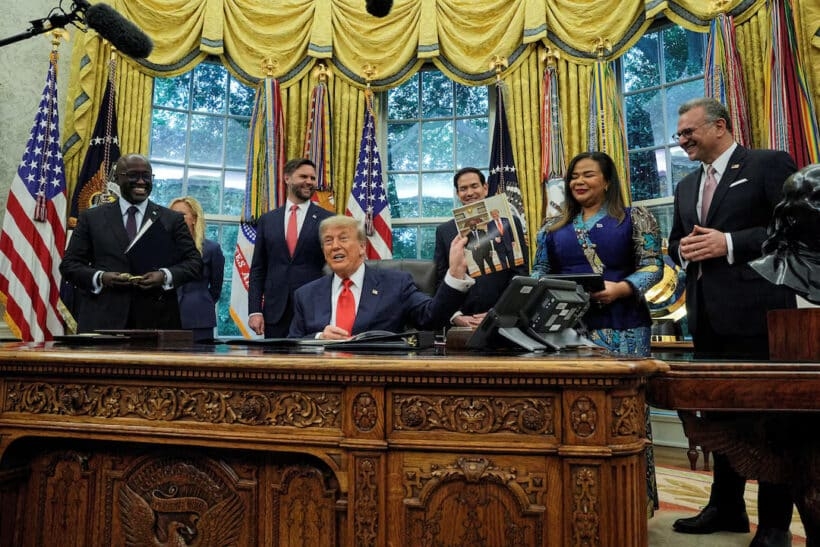In the annals of Kenya’s history, 2023 will go down as one in which Kenya made huge strides towards the full realisation of Universal Health Coverage.
President William Ruto embarked on an ambitious journey to revolutionise the health sector, leaving an indelible mark on the lives of Kenyans.
Recognizing the fundamental importance of ensuring equal access to quality healthcare by all Kenyans, Ruto navigated the complexities inherent in such an endeavour.
The masterstroke towards achieving this was the introduction of three new health bills.
It also saw the introduction of a mandatory 2.75 per cent levy on all salaried workers.
This, Ruto said, is aimed at making healthcare more affordable and accessible for poorer Kenyans.
"The people of Kenya talked loudly for a system that leaves nobody behind, where families do not lose their properties or savings due to illness," Ruto said at an event in Nairobi.
To ensure this grand project succeeds, Ruto is banking on Primary Health Care.
While primary health care has been in existence for decades, it has waned over the years due to a lack of commitment.
For instance, community health volunteers, now called community health promoters, have been in existence for years, but they have not been performing their roles optimally, with the main challenge being the lack of an enabling legal and regulatory environment as well as the inconsistent payout of their stipend.
This has resulted in poor services.
The Kenya Kwanza administration now seeks to turn around this situation and make health the primary healthcare centrepiece of his plans to attain the dream of Universal Health Coverage.
“Primary health care is the bedrock of UHC,” Health CS Susan Nakumicha said.
Statehouse spokesperson Hussein Mohamed stated that Kenya Kwanza administration led by President Ruto is resolute in its determination to make UHC a reality.
“For the first time, every Kenyan irrespective of their economic status will have a health insurance,” Hussein told the Star in an interview.
He stated: “For those who are unable to pay the minimum Sh300, the government will pay for them. This will ensure that no one is left behind in accessing quality health care".
Laws
With a laser focus on achieving UHC, the government identified key areas of improvement and devised meticulous plans to tackle each one.
From bolstering healthcare infrastructure and increasing medical personnel to enhancing the quality and affordability of healthcare services, no stone was left unturned in their pursuit of a transformed health system.
On October 19, Ruto signed into law four health bills which are- the Social Health Insurance Bill, the Digital Health Bill, the Primary Healthcare Bill, and the Facility Improvement Financing Bill.
Under the new system, which will be anchored on the four new laws, primary health care will be offered free of charge at the community and facility levels.
The Primary Healthcare law aims to strengthen preventive health services by co-opting the 100,000 community health promoters while the Social Health Insurance law abolishes NHIF and creates three new funds- a Primary Health Care Fund, a Social Health Insurance Fund and a Chronic Illness and Emergency Fund.
Digital Health law seeks to promote telemedicine and digitise health services by ending written transactions.
The Facility Improvement Financing law on the other hand restricts funds raised in public health facilities so that those funds are not put to other uses outside of health.
The prominent features of primary health care are promotion and prevention.
“We need to move away from firefighting in the provision of healthcare,” Daniel Mwai, Presidential adviser on health says, noting that shifting from curative to preventive and promotive will significantly cut the costs of health.
Promotion comprises consulting, education and awareness, while prevention focuses on primary, secondary and tertiary screening and immunization.
Other components of this segment are ambulatory care, palliative care and rehabilitative care.
Community Health Promoters (CHPs)
At the community level 104, 000 Community Health Promoters have been enlisted to champion promotion and prevention.
Each CHP visits 100 households every two to three months to offer all Kenyans basic care in the comfort of their home.
“The Community Health Promoters have vital roles to play in ensuring the success of primary health care, which is the centre-piece of UHC,” says Medical Services PS Harry Kimtai.
These roles are delivering key health information to families including on hygiene, and nutrition; guiding families on health improvement and disease prevention; providing basic first aid to treat common ailments and minor injuries; and carrying out basic health screening during home visits like the blood pressure, weight, and diabetes.
“The community health promoters are already visiting homes. They are the pillars of the primary health care, which anchors the drive for UHC,” Hussein stated.
Other roles are promoting compliance with treatment and advice prescribed by a health facility, determining early signs of sickness among family members and referring them to a health facility, and promoting appropriate home care for the sick, people with disabilities, and patients with chronic ailments.
How it works
The success of primary care also relies on behaviour change among individuals, households and the community, which can be pivotal in the promotion of primary health by encouraging community members to adopt healthier lifestyles as well as seek appropriate healthcare.
The promoters will refer cases they cannot handle to levels two and three facilities within the locality.
At these facilities, services are free as they draw their funds from the Primary Health Care Fund, which gets its finances through allocation by Treasury and support from donors, philanthropists and development partners.
If Levels two and three facilities are unable to treat a patient owing to complications of the disease, referral is made to Levels 4, 5, 6 depending on the nature of the disease.
Level 4 facilities comprise subcounty referral hospitals or its equivalent in private and faith-based facilities.
Level 5 are the County Referral Hospitals as well as equivalent private and faith-based facilities. Level 6 refers to Kenyatta National Hospital, Moi Teaching and Referral Hospital as well as top-level private and faith-based hospitals.
While treatment at Level 2 and 3 facilities is free, services at Levels 4, 5, 6-which represent secondary health care services - will be offered at a cost, which is covered by Social Health Insurance.
Patients will not incur out-of-pocket expenses to obtain these services.
This Social Health Insurance Fund will cover all Kenyans and remove the burden of the high cost of treatment from the shoulders of Kenyans, particularly the common man or the so-called hustlers.
The primary goal of Fund is to end out-of-pocket expenses and foster inclusion in provision of quality health care.
The biggest challenges that households face is when one of their loved one suffer such chronic diseases as diabetes and cancer.
These diseases are not only costly to treat, but they require long-term management, putting pressure on household incomes.
This pushes many families to pile up debts and sell their assets to offset the health expenses. Faced with this grim situation, many households have sunk into poverty and rendered destitute.
This is the situation that the Emergency, Chronic and Critical Illness Fund seek to remedy.
Upon exhausting the allocation for such chronic diseases under the Social Health Insurance, households and individuals can find solace in the Emergency, Chronic and Critical Illness Fund.
At this level, the patients and households do not pay anything.
All they need is to ensure that their contribution to the Social Health Insurance is up to date.
The Chronic and Critical Illness Fund gets resources through allocation by the government as well as from donors, philanthropists and partners.















